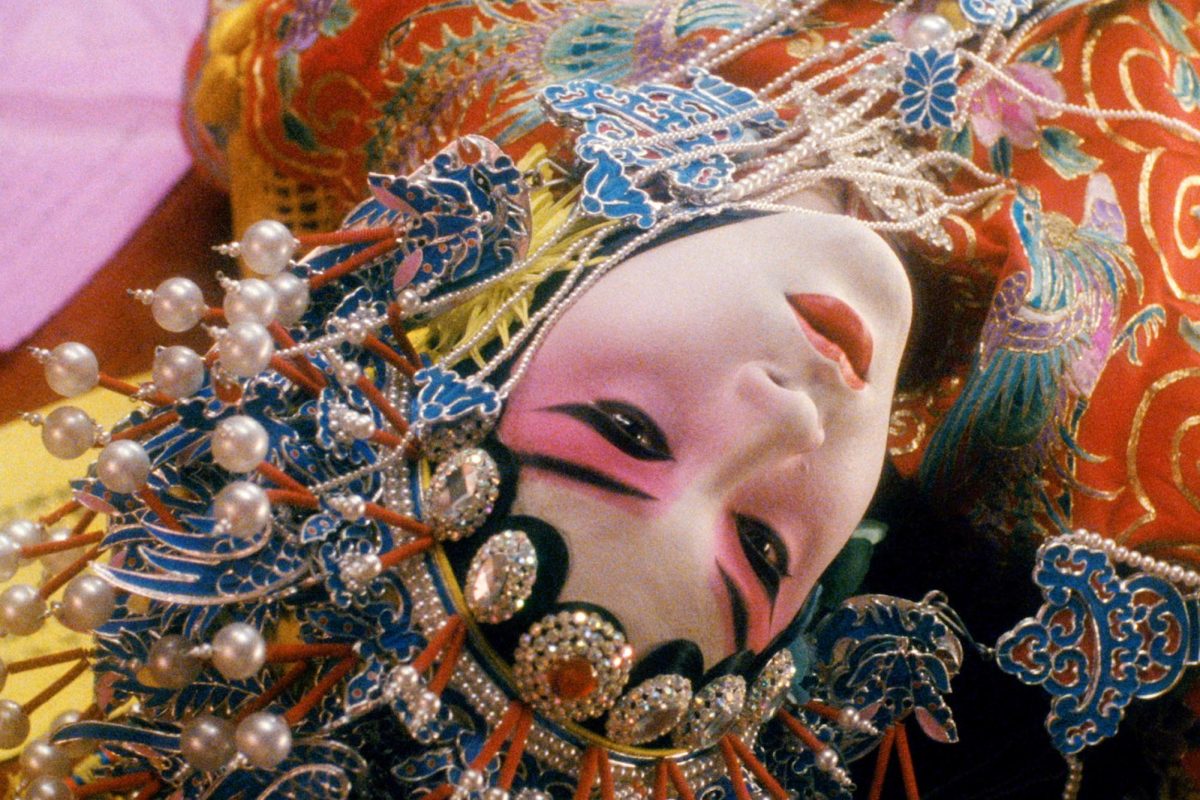Thirty years after “Farewell My Concubine’s” triumphant showing at the Cannes Film Festival — where it took home the coveted Palme d’Or prize — a new, uncut 4K restoration is releasing in theaters. A vibrant whirlwind of crashing cymbals, costumed acrobats and heartbreaking melodrama, Chen Kaige’s beloved period drama is a defining entry in Sinophone cinema, which refers to multicultural films made in the Chinese language. A timeless visual spectacle, the film also immortalizes the artistic legacy of Hong Kong icon Leslie Cheung — a revered popstar and actor who took his own life in 2003.
Distributed by Film Movement Classics, a New York-based distributor of international and independent releases, this latest theatrical release will include 20 minutes of footage previously cut by Harvey Weinstein’s Miramax. During its initial release, government censors also banned the film in China and Taiwan.
Based on the novel of the same name by Lilian Lee, the historical epic tracks the nearly 70-year relationship between two male Peking opera performers: the hypermasculine Duan Xiaolou (Zhang Fengyi) and the effeminate Cheng Dieyi (Leslie Cheung). From a young age, both boys are rigorously trained to perfectly fit into the mold of their onstage archetypes. Duan is a forceful jing — a typically rough and masculine performer — and Cheng is a cross-dressing dan — a traditionally demure and feminine actor.
Beset by shifting political realities, artistic obsession and lustful desire, the two stage brothers struggle to navigate the tumultuous life in 20th-century China. As the middle kingdom violently switches hands — from ruthless Japanese invaders to the corrupt Nationalist officials and finally the fanatical Red Guards — the artists, relics of a condemned history, are pushed further into the margins of Chinese society.
The film’s mesmerizing imagery — crafted by Chen and cinematographer Gu Changwei — paints a vivid portrait of a world in flux. Changwei thrusts viewers between disparate spaces, from ornate opera theaters to the war-torn streets of Beijing. Cheng and Duan helplessly watch as their native city is disfigured and transformed beyond recognition. With nothing left to latch onto, the only constant in their lives is their characters on stage. Jeweled headdresses, crimson robes and striking face paint augment visceral dreamlike sequences. Countless frames feel like they exist between the realm of classical paintings and ethereal dreams. Coupled with Zhao Jiping’s resonant score — a soundtrack that incorporates traditional Chinese instrumentation — “Farewell My Concubine” completely envelopes viewers in a world of astounding beauty and immense suffering.
While the film has no shortage of strong performances, Cheung dominates every minute of screen time. He has already proven his skills as a dramatic actor in projects like the 1990 film “Days of Being Wild,” and he delivers a performance layered with emotional complexity and nuance. While Cheung’s Cheng Dieyi appears to be an impulsive diva who obsesses over his craft, his unfettered dedication to the opera is a fragile mask for the character’s inner turmoil. Abandoned by his mother and abusively trained to embody female roles on stage, Cheng’s childhood is defined by physical pain and emotional trauma. Under the snow-white face paint lies a vulnerable man who is constantly at odds with his own sexuality and desires. Cheung disappears into the character, effortlessly switching from a delicate operatic number to a blind rage. He convincingly portrays a larger-than-life personality that is completely shattered inside.
A decade after the film’s release, at the height of Cheung’s popularity, he tragically took his own life. In an eerie reflection of the film, the Cantopop superstar and queer icon grappled with severe depression, eventually leading to his passing. With millions of fans around the world mourning Cheung’s death, his work in film and music became all the more potent. “Farewell My Concubine” remains a somber reminder of an artist’s relationship with his work.
In 2023, the landscape of Chinese language cinema couldn’t look more different from the ’90s. Filmmakers like Chen Kaige — who were once lauded as trailblazers in national cinema — now spend their days directing over-the-top action blockbusters. While China has no shortage of young pop stars, none command affection and admiration the same way Cheung did.
Yet stories like “Farewell My Concubine” remind viewers of cinema’s power to incite unyielding innovation. Despite efforts to censor and alter the project from bodies in several different nations, the full film has found its way back to the surface. Although existing fans of the film will surely come out in droves to catch the film in cinemas, this new re-release is also an opportunity to remind moviegoers of the transformative power of art.
“Farewell My Concubine” will start playing at Film Forum on Sept. 22. Tickets can be purchased online or at the box office.
Contact Mick Gaw at [email protected].























































































































































